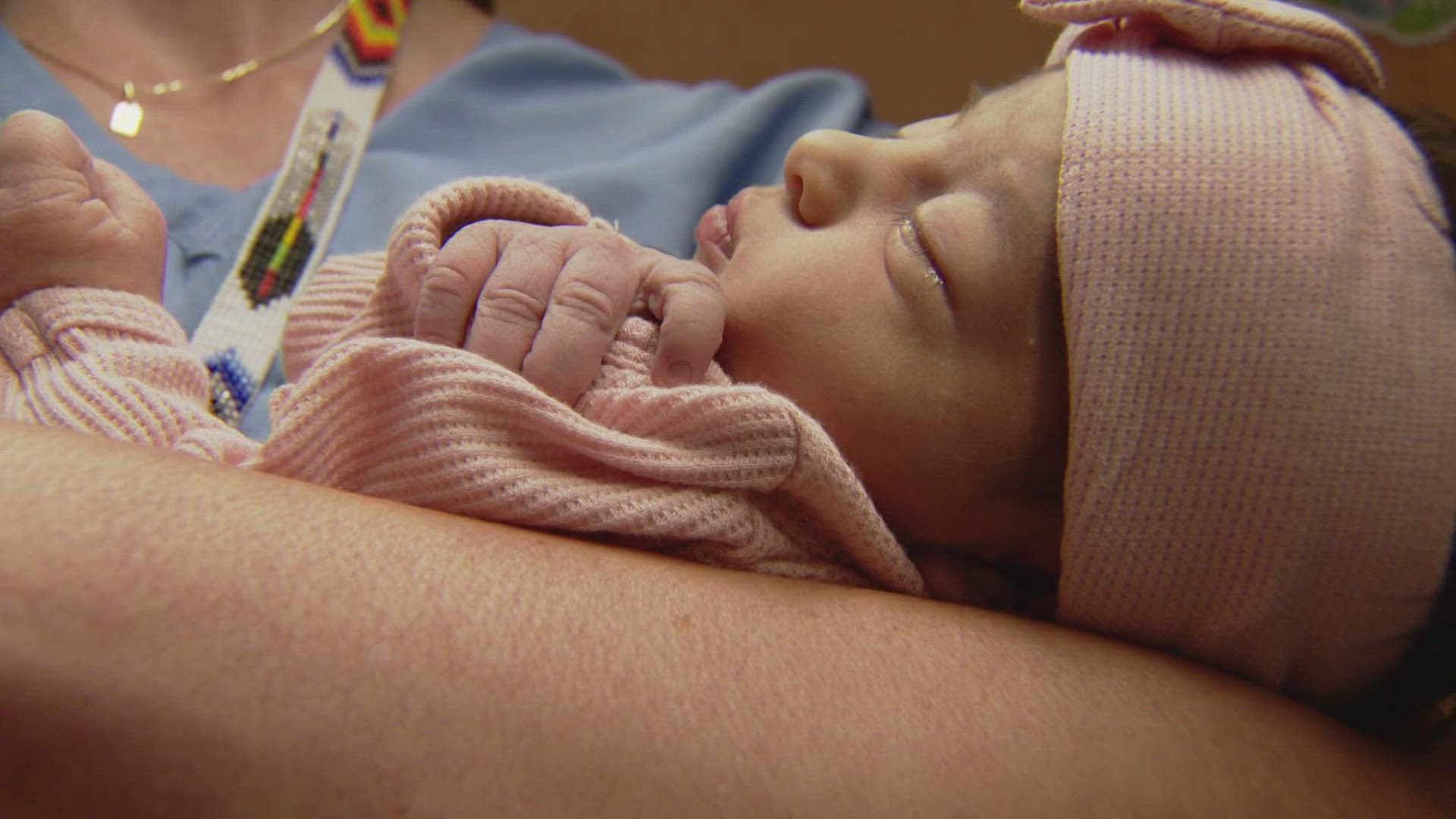PARKER, Colo. — When it comes to having kids, many women are having fewer, if any, at all.
A new report from the CDC shows in 2023, the U.S. hit an historic low for fertility rates. Experts say this is a trend they expect to continue.
"But there's something special about helping bring a baby into the world," said Dr. Kristrun "Kitty" Kristinsdottir, an OBGYN with AdventHealth Parker.
Checking on newborn baby Alina, these are moments Dr. Kristinsdottir savors. As an OBGYN, she's delivered plenty of these bundles of joy.
But new data from the CDC shows women are having babies less often and the fertility rate reached a record low in 2023.
"You know, I'll be honest. I don't think it's entirely surprising," Dr. Kristinsdottir said.
Since 2007, when the fertility rate was at its most recent high, the report shows the number of births has dropped 17% and the fertility rate dropped 21% in 2023.
"Yeah, it looks like the lowest number that we've had," Dr. Kristinsdottir said. "It doesn't sound like a lot but it's been more of a long-term trend."
When it comes to why, Dr. Kristinsdottir said there's not just one answer.
"I think there are a lot of things that play into it," Dr. Kristinsdottir said. "Anything from patients now, women feeling more comfortable, saying they don't want to have kids, they don't plan on having children. You know, I think that's something in the past was maybe not socially acceptable."
Some women are choosing their careers.
Others worry about the environmental impact of having kids.
Some just can't afford it.
With abortion access uncertain, some women are having their tubes tied to prevent it.
And those women that are having kids are waiting longer to start families.
"It's unusual now for us to see someone in their early twenties, you know 21, 22, whereas years ago, that was a very normal time to start having kids. And the trend has definitely shifted to having kids later in life," Dr. Kristinsdottir said.
And when they do, she said, they're having fewer children.
"It's a little bit unusual now to see a family that has 5 or 6 kids whereas back maybe 20, 30 years ago that was a lot more the norm. So people are definitely having fewer kids," Dr. Kristinsdottir said.
While some are sounding the alarm about this drop in birth rates, Dr. Kristindottir said she believes this decline is due to women having options.
"People have more choices now and they're able to make that decision without society making them feel like they're doing something crazy or wrong," Dr. Kristinsdottir said. "For the most part, we have to trust women. When they know what they want, they know what they want."
And while it's difficult to know what the future might hold, Dr. Kristinsdottir said she expects the drop in birth rate will eventually even out as people start to feel more comfortable deciding if and when starting a family is right for them.

